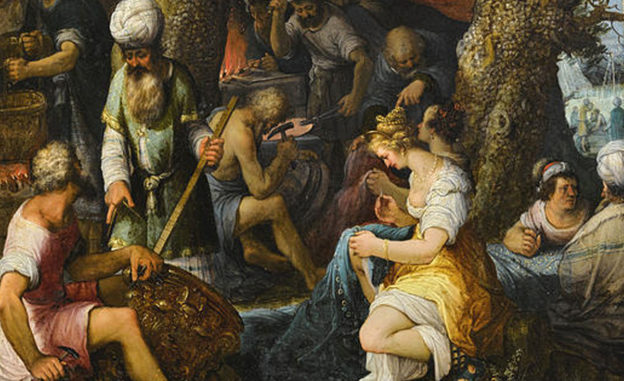As I write this I am just about due to receive another email explaining how Transmission Gully limps closer and closer to opening. Each week, an email comes out to demonstrate how one or two checklist items are ticked off the extensive list which must be met before the public can finally travel on the road. This list, while annoying to those of us wanting the new road open, makes sure that the product purchased is the one delivered, and that any defects are fixed before a cent is paid to the builders.
If quality assurance is something that’s essential for a mere road, then it should not surprise us that the dwelling-place of God with his people would be subject to strict quality assurance as well. Moses, as God’s mediator, checks that all the aspects of the tabernacle have been completed as instructed before giving it his blessing. This demonstrates the importance of following God’s commands, and how Jesus met God’s strict quality assurance requirements on our behalf.
God provided very specific instructions for the construction of the tabernacle and its contents. We have explored these, the reasons why, and what they symbolised, as we have looked at previous chapters. We have also seen the care to which Bezalel and Oholiab, and those they directed, took to follow the plans which God provided to them.
But despite this, quality assurance was still necessary. It is not always enough that something is done, but also necessary that something is seen to be done. Given God’s holiness, and the danger that could come if the Israelites failed to meet God’s exact instructions, some review was very necessary. To not keep God’s commands would be a sin, and the wages of sin is death. Even over something as seemingly trivial to us as the metal used for the cutlery.
So they brought all the items they had fashioned to Moses (vv.33-41). It did not matter if the item was big, like the tent, or small, like the utensils used to trim the candles on the lampstand. All of the items were brought to Moses for inspection.
They did this because “all the work of the tabernacle of the tent of meeting was finished, and the people of Israel did according to all that the Lord had commanded Moses; so they did” (v.32). Just as when God created everything (Genesis 1-2) he stopped and examined everything he had created, so too the people stopped and examined everything they had fashioned out of God’s Creation.
At Creation, Adam the first mediator (of the Covenant of Works) between God and Man examined the animals that God created (Genesis 2:18-19). At Sinai, Moses the mediator (of the Mosaic Covenant between God and Israel) examined all that the people had fashioned to see if it was appropriate for God’s purposes.
When God made everything, he made it very good. When the Israelites made the “miniature cosmos” of the tabernacle where God was coming to dwell with them, they made it “according to all that the Lord had commanded Moses” (v.42).
Moses did not give it a casual once over, but “Moses saw all the work, and behold, they had done it; as the Lord had commanded, so had they done it” (v.43). The picture here is of Moses with a clip-tablet, inspecting spoons, checking the artistry of the tapestry, counting off the number of tent feets and poles.
What was the outcome? The inspection passed. Unlike a certain Northern Wellington road which has missed multiple opening deadlines, the people of Israel followed the detailed instructions and did their very best work.
A passed inspection today generally means a certificate or a sticker on the car windscreen. For the Israelites, “Moses blessed them” (v.43). Israel had met the standard. They had listened to God, done as he commanded, and produced something fitting for the King of Kings to come and dwell with them. It had God’s blessing, and so Moses passed that blessing on.
If they had not done as God commanded, blessing could not have come. No “at least you tried” cake is appropriate for failing to meet God’s standards. We all must meet the standards that God requires, consistently, persistently. Sadly, we don’t.
Thankfully, Jesus met the perfect standard that God requires for us. God declared of Jesus “This is my beloved Son, with whom I am well pleased” (Matt. 3:17). God accepted Jesus’ perfect life and perfect sacrifice through raising Jesus from the dead (Romans 1:4). Jesus passed the inspection, his offer of salvation through trusting in him is a quality good. Offered without price (Is. 55:1), why would we not buy?
This allows us to pass inspection for the eternal presence of a holy God. How can we give thanks as the Israelites did in their construction project? By paying attention to God’s commands, and obeying them. By glorifying God in everything, offering it as praise to him. In these works we will be blessed; in Christ we will pass the final quality assurance test.

